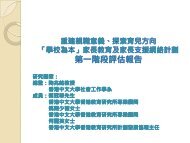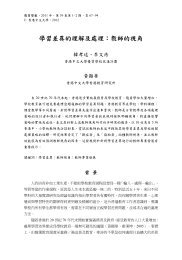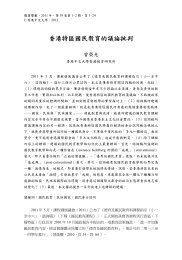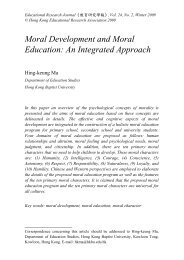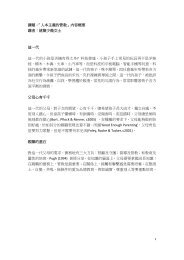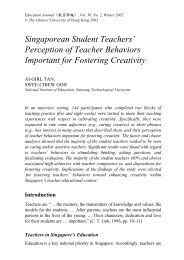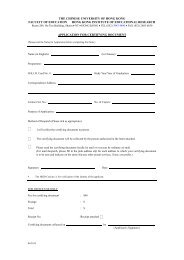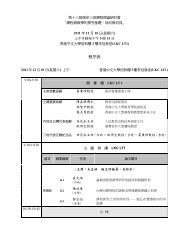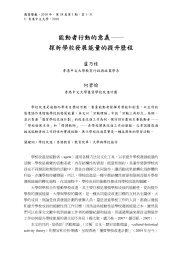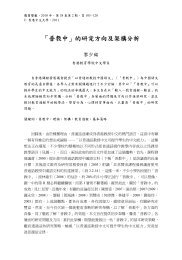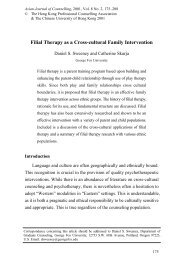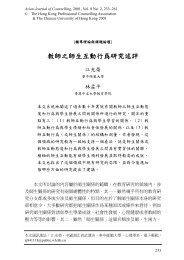Using School Evaluation Policy to Effect Curriculum Change? A ...
Using School Evaluation Policy to Effect Curriculum Change? A ...
Using School Evaluation Policy to Effect Curriculum Change? A ...
You also want an ePaper? Increase the reach of your titles
YUMPU automatically turns print PDFs into web optimized ePapers that Google loves.
204 Shirley Sze-yin Yeung<br />
forward its proposals of curriculum reform. Eisner (2001) once<br />
describes this kind of practice by the concept of rationalization. He<br />
elaborates that rationalization has a number of features. By comparison,<br />
it is found that ESR and SSE actually displays many of these features,<br />
for instance:<br />
1. it depends on a clear specification of intended outcomes — i.e.,<br />
what standards and rubrics (PIs) are supposed <strong>to</strong> do;<br />
2. it uses measurement and assessment as a means through which the<br />
quality of a product or performance is assessed and represented;<br />
3. it is predicated on the ability <strong>to</strong> control and predict — it enables the<br />
government <strong>to</strong> control or moni<strong>to</strong>r how schools perform and <strong>to</strong><br />
which extent the curriculum standards are met;<br />
4. it promotes comparison and commensurability — in the community<br />
of Hong Kong, schools are currently compared by the parents, ESR<br />
facilitates this process. (Eisner, 2001, pp. 184–186)<br />
This allows the government <strong>to</strong> mandate and direct officially<br />
designed curriculum change (<strong>Curriculum</strong> Development Council, 2001).<br />
Besides, the formulation of standards and the measurement of<br />
performance are ways <strong>to</strong> make teachers and schools more accountable <strong>to</strong><br />
the public. Consequently the government could maintain efficiency and<br />
effectiveness of local education. However, it will be sad if the<br />
community is pursuing one set of standards and a homogenous<br />
curriculum, which is mainly manipulated by a central agency. And this<br />
also threatens the professional au<strong>to</strong>nomy of teachers.<br />
Moreover, this study reflects how school curriculum in Hong Kong<br />
experiences the combined force of bureaucratic control and consumer<br />
choice. Interviewees mentioned that school survival required parental<br />
support. Parents therefore could influence and moni<strong>to</strong>r the direction of<br />
local educational development. Obviously the government understands<br />
this and by way of public propaganda, officials easily mould the values<br />
of parents. Hence, the EDB uses its bureaucratic power as well as<br />
consumer power <strong>to</strong> take away the professional control of education from<br />
teachers. Teachers have <strong>to</strong> give way <strong>to</strong> “consumer choice” as well as<br />
bureaucratic control. This kind of bureaucratic accountability in<br />
education impedes professional development of the community (O’Day,



